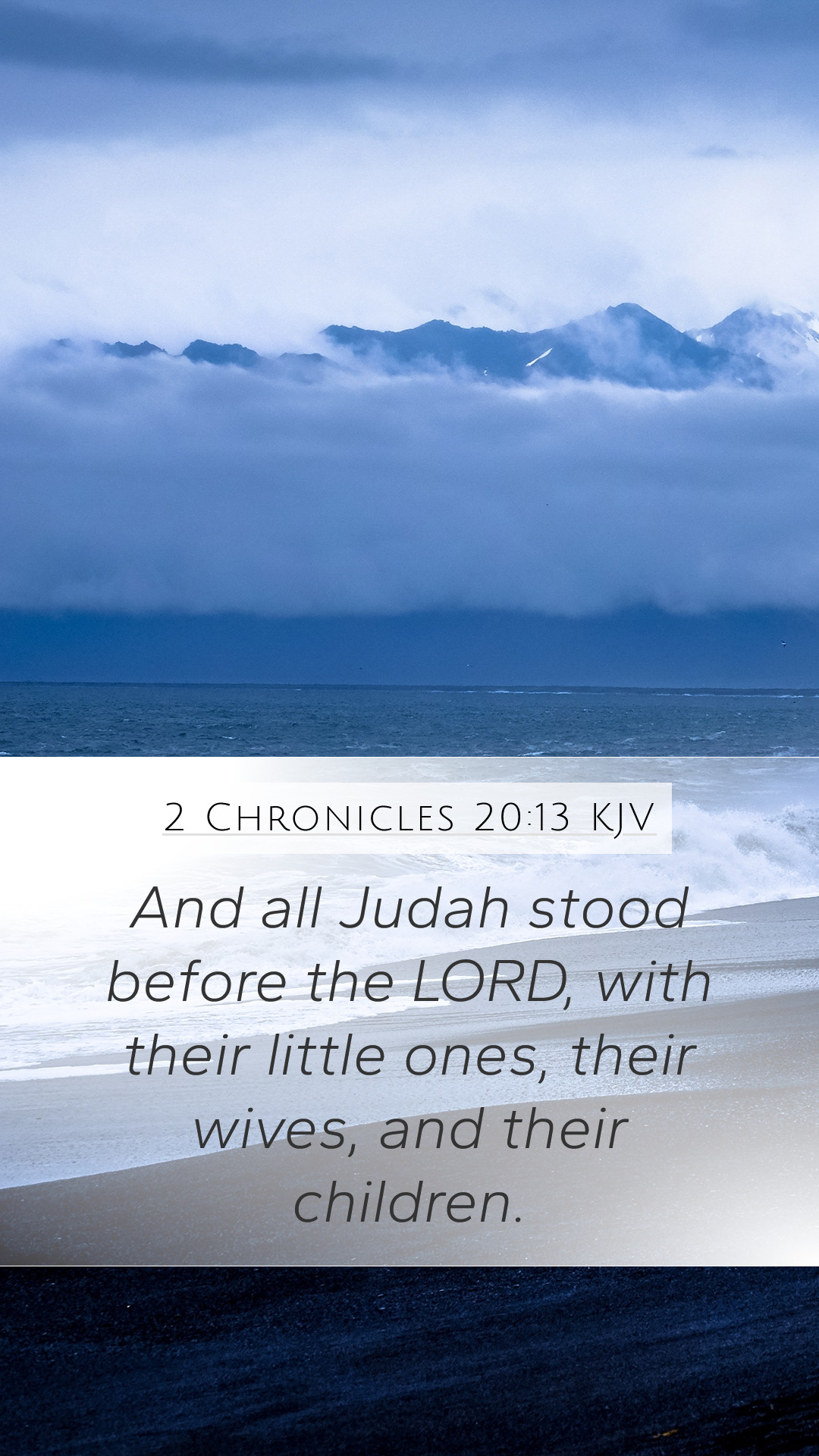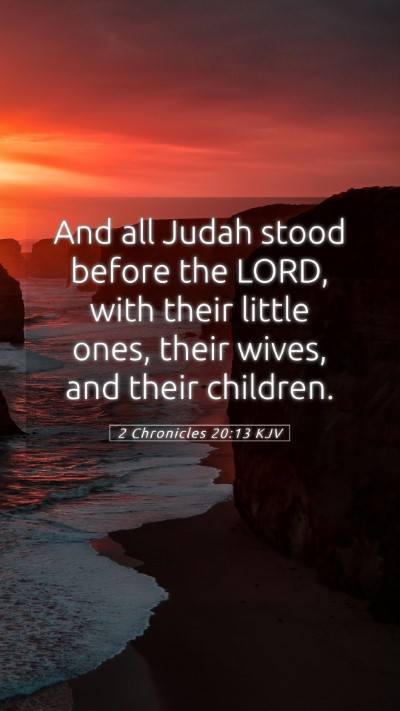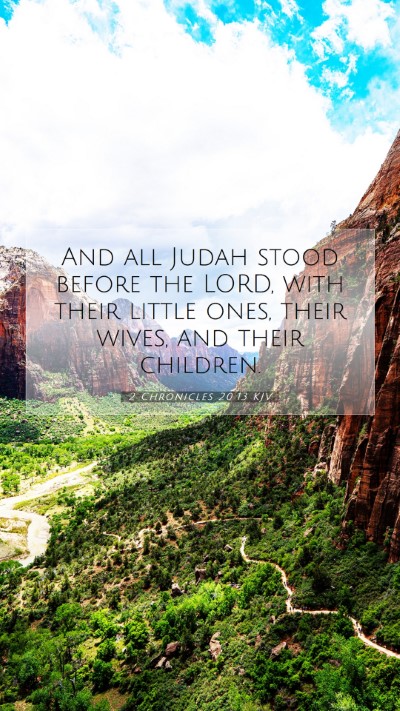Bible Verse Meaning and Commentary: 2 Chronicles 20:13
“And all Judah stood before the Lord, with their little ones, their wives, and their children.”
This verse depicts a moment of communal reliance on God during a time of crisis. It highlights the unity of the people of Judah as they gather to seek divine intervention against their enemies. Understanding this verse requires exploring its historical context, theological implications, and personal applications.
Historical Context
In the time of King Jehoshaphat, Judah faced an imminent threat from a coalition of enemy nations. This crisis prompted a national gathering to seek God's guidance and help. Historically, such communal approaches to prayer are reflected throughout the Old Testament, where the nation would turn to God during perilous times.
Theological Insights
The act of standing before the Lord signifies a posture of worship, dependence, and supplication. This gathering included all demographics—little ones, wives, and children—illustrating that in times of adversity, every member of the community is vital. Commentators like Matthew Henry emphasize that prayer before God is not just for the strong or the wise but encompasses the whole community.
Exegesis and Analysis
- Unity in Faith: The people of Judah exemplify unity in faith by collectively standing before the Lord. Their act demonstrates the importance of coming together as a community, especially in crisis situations.
- Reliance on God: The verse reflects a deep reliance on God’s power. This act of standing indicates submission to divine authority, suggesting that true strength lies not within themselves but in their faith in God.
- Inclusivity in Prayer: The inclusive nature of the gathering signifies that every individual’s presence and participation matter in the spiritual journey. It underscores the idea that prayer and seeking God should involve the entire community.
Applications for Today
In contemporary settings, this verse serves as a model for how communities can approach challenges together:
- Community Prayer: Just as Judah gathered to seek God, modern believers should engage in collective prayer, especially during times of trouble.
- Involvement of All Generations: This verse advocates for the inclusion of all ages in spiritual practices, emphasizing that faith is intergenerational and should nurture every member of the community.
- Trusting God in Crisis: Individuals and groups are encouraged to turn to God in their own crises, mirroring Judah's example of total dependence on divine intervention.
Commentary Insights
Albert Barnes highlights the significance of unity in prayer, noting that their collective action was pivotal in attracting God’s attention. Adam Clarke adds that the presence of children and families among the supplicants signifies a holistic approach to faith and reliance on God across all aspects of life.
Conclusion
2 Chronicles 20:13 is more than a historical account; it offers profound insights into the human condition's need for divine assistance, emphasizing communal prayer, faith, and inclusion. For anyone looking to deepen their understanding of Scripture, this verse provides a rich area for study and reflection, underlining the significance of prayer as an act of communal faith.
Related Bible Cross References
- 2 Chronicles 7:14 - A call to humble oneself and pray.
- Psalms 34:17 - The Lord hears the cries of the righteous.
- James 5:16 - The power of prayer in a righteous person's life.


